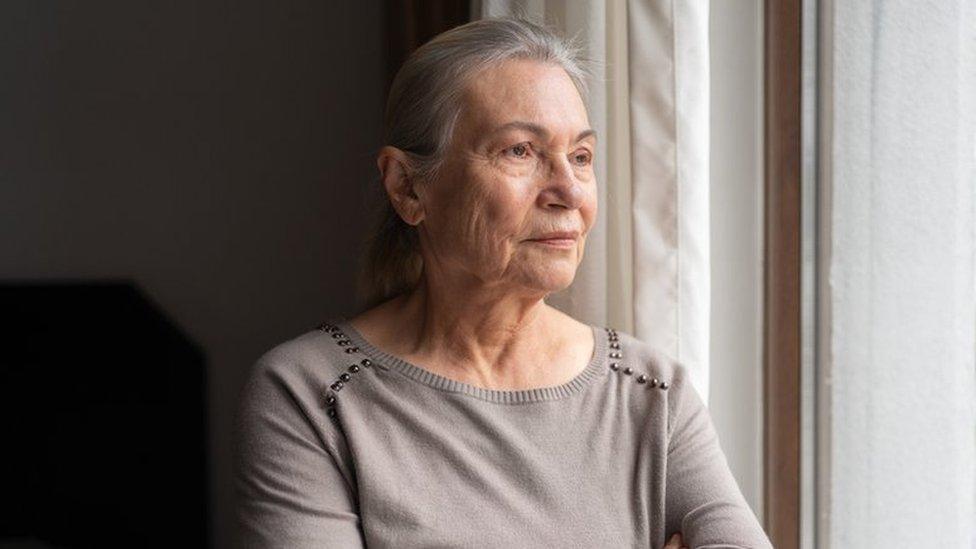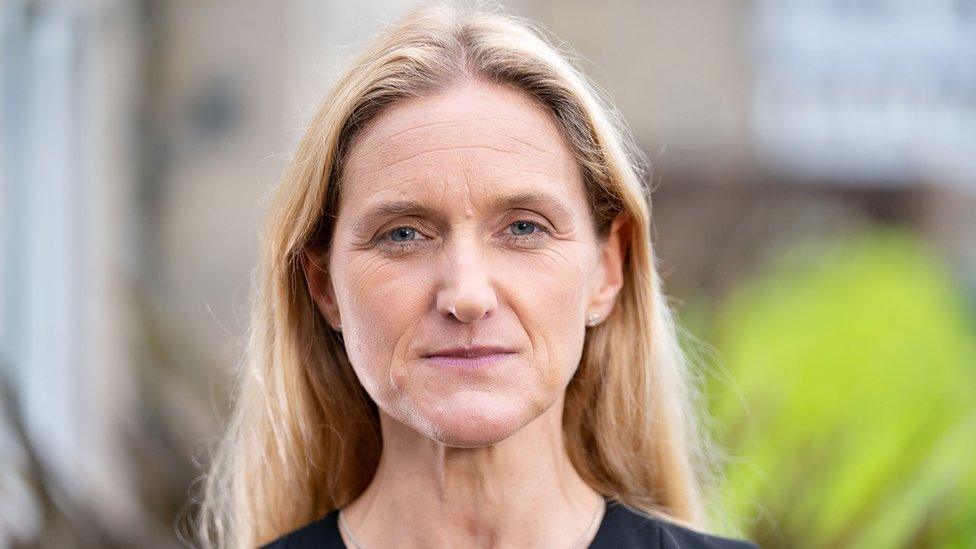What is assisted dying and could the law change?
Many countries have legalised assisted dying, assisted suicide or euthanasia, which are different.


Proposals to give terminally ill people in England and Wales the right to choose to end their life have been introduced in Parliament.
A separate bill is already under discussion in Scotland.
Opponents have raised concerns including the possibility of people being put under pressure to end their lives.
Campaign group Care Not Killing said the government should focus on improving palliative care instead.
What are assisted dying, assisted suicide and euthanasia?
There is some debate over exactly what the various terms mean.
However, assisted dying generally refers to a person who is terminally ill receiving lethal drugs from a medical practitioner, which they administer themselves.
Assisted suicide is intentionally helping another person to end their life, including someone who is not terminally ill. That could involve providing lethal medication or helping them travel to another jurisdiction to die.
Euthanasia is the act of deliberately ending a person’s life to relieve suffering in which a lethal drug is administered by a physician. Patients may not be terminally ill.
There are two types: voluntary euthanasia, where a patient consents; and non-voluntary, where they cannot because, for example, they are in a coma.
Are assisted dying, assisted suicide or euthanasia legal in the UK?
Throughout the UK, laws prevent people from asking for medical help to die.
Euthanasia is illegal under English law and is considered manslaughter or murder. The maximum penalty is life imprisonment.
The Suicide Act 1961 also makes it illegal to encourage or assist a suicide in England and Wales. Those found guilty could face up to 14 years in prison.
Similar laws exist in Northern Ireland.
In Scotland, it is possible that helping a person to die could lead to prosecution for an offence such as culpable homicide.
In March 2024, MPs on the Health and Social Care Committee highlighted confusion over the rules governing UK doctors whose patients want to go abroad to die.
The British Medical Association (BMA) advises doctors not to produce medical reports for patients who wish to carry out assisted suicide abroad, such as at Dignitas in Switzerland.
How might the law on assisted dying change in England and Wales?
Labour MP Kim Leadbeater’s Terminally Ill Adults (End of Life) Bill would give terminally ill people in England and Wales the right to end their life.
It is expected to be similar to one introduced in the House of Lords in July 2024, under which terminally ill adults with six months or less to live would be able to be given medical help to end their own lives.

MPs are expected to have the chance to debate Ms Leadbeater’s bill in the House of Commons on Friday 29 November.
Ms Leadbetter told BBC News that “now is the time” to hold a fresh debate on assisted dying.
“The current situation isn’t particularly safe and there isn’t actually the choice that I believe people deserve and should have,” she said.
The bill would have to be approved by MPs and peers before it becomes law.
Prime Minister Sir Keir Starmer previously promised to give Labour MPs a free vote on the issue and has personally supported calls for a change in the law.
MPs last rejected a bill on the issue in 2015.
How might the law change in Scotland?
Liberal Democrat MSP Liam McArthur has drafted the Assisted Dying for Terminally Ill Adults (Scotland) Bill.
If passed by MSPs, it would allow terminally-ill adults to request assistance to end their life.
To be eligible, applicants would have to:
-
be resident in Scotland for at least 12 months
-
be registered with a GP in Scotland
-
have the mental capacity to make the request
In October 2024, Scottish Health Secretary Neil Gray said the proposed legislation went beyond the limits of Holyrood’s powers, and was a matter for Westminster.
However, Mr McArthur said he was “very confident” the UK and Scottish governments could work together to ensure the bill became law if it was backed by MSPs.
Two previous attempts to pass bills on assisted dying, in 2010 and 2013, both led by the late MSP Margo MacDonald, who had Parkinson’s disease, were rejected.
Who wants the law on assisted dying to change?
Both the BMA and Royal College of Nursing have neutral positions on assisted dying.
But campaigners representing people with terminal and life-limiting illnesses have made a number of attempts to alter the law in recent years.
One of the highest-profile advocates for change is broadcaster Dame Esther Rantzen, who joined Dignitas after being diagnosed with stage-four lung cancer.

She launched a petition in support of assisted dying in December 2023.
It received more than 200,000 signatures, and triggered a debate in Parliament on 29 April. Dame Esther urged MPs to attend, despite the lack of a binding vote.
“All I’m asking for is that we be given the dignity of choice,” Dame Esther told BBC News, after details of Ms Leadbetter’s bill emerged.
“If I decide that my own life is not worth living, please may I ask for help to die?”
Who opposes assisted dying?
Paralympian and House of Lords crossbencher Baroness Grey-Thompson is against changing the law.
She told the BBC she is worried about “the impact on vulnerable people, on disabled people, [the risk of] coercive control, and the ability of doctors to make a six-month diagnosis”.
Coercive control describes a pattern of harmful and abusive behaviour.

Palliative care and public-health doctor Dr Lucy Thomas said assisted dying was a last resort, and that choosing to end your life was not a “straightforward consumer decision”.
Actor and disability-rights activist Liz Carr, who made BBC One documentary Better Off Dead?, also opposes changing the law.
“Some of us have very real fears based on our lived experience and based on what has happened in other countries where it’s legal,” she wrote on X, formerly known as Twitter.
The Archbishop of Canterbury Justin Welby told the BBC that legalising assisted dying was “dangerous”, and could lead to a “slippery slope” where more people would feel compelled to have their life ended medically.
Dr Gordon Macdonald, chief executive of campaign group Care Not Killing, said Ms Leadbetter’s bill was “clearly disappointing”.
“I would strongly urge the government to focus on fixing our broken palliative-care system that sees up to one in four Brits who would benefit from this type of care being unable to access it, rather than discussing again this dangerous and ideological policy,” he said.
But Ms Leadbetter insisted her bill “will not undermine calls for improvements to palliative care”.
Where is euthanasia or assisted dying legal around the world?
The Dignity in Dying campaign group says more than 200 million people around the world have legal access to some form of assisted dying.
Switzerland has allowed assisted suicide since 1942 and its Dignitas facility began operating in 1998.
The organisation accepts foreign patients as well as Swiss nationals, and said it had 1,900 UK members in 2023, a 24% rise on the previous year.
Between 1998 and 2023 Dignitas helped 571 Britons to die.
Assisted suicide is also legal in Austria.
In the US,11 states – Oregon, California, New Mexico, Colorado, Washington, Hawaii, New Jersey, Vermont, Maine and Washington DC – allow “physician-assisted dying”.
It permits doctors to prescribe lethal drugs for self-administration.
Voluntary euthanasia is legal in Canada where it is called medical assistance in dying. It can be provided by a doctor or nurse practitioner, either in person or through the prescription of drugs for self-administration.
It is also legal in Spain and Colombia, both of which also permit assisted suicide.
Assisted dying is legal in some parts of Australia but the law differs across states. It is not permitted in either the Northern or Australian Capital territories.
New Zealand’s End of Life Choice Act legalises assisted dying and allows adults in their final months of life to request assistance from a medical professional.
Three countries have laws that allow people who are not terminally ill to receive assistance to die: The Netherlands, Belgium and Luxembourg.








